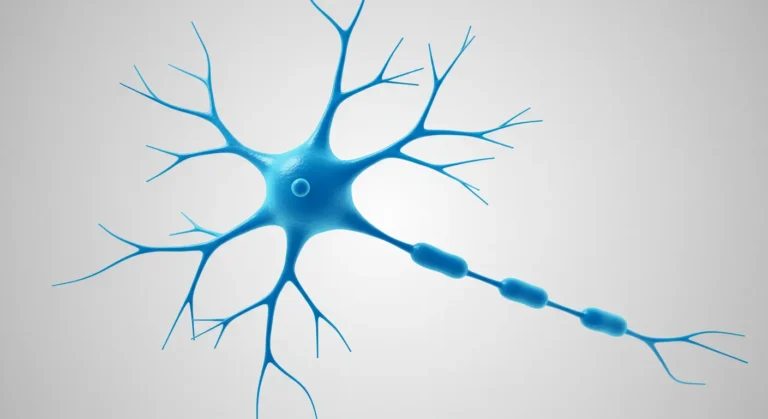How to Improve Concentration in Study: Unlock Super Focus with Proven Techniques

Staring at the same paragraph for the tenth time while your mind wanders to literally anything except your textbook? You’re not broken – you’re human. Last semester, my nephew Alex came to me frustrated because he’d spent four hours “studying” but couldn’t remember a single thing he’d read.
The problem wasn’t his intelligence or motivation. Like 73% of students, Alex simply didn’t know how to improve concentration in study sessions effectively. His brain was fighting against outdated study methods instead of working with its natural learning patterns.
If you’re tired of reading the same page repeatedly or feeling mentally drained after unproductive study sessions, this guide will change everything. These aren’t generic tips – they’re neuroscience-backed strategies that actually work.
Key Takeaways:
- Your brain has natural attention cycles you can leverage for better focus
- Environment and timing dramatically impact concentration quality
- Simple techniques can double your effective study time
- Distraction management is more important than willpower
- Memory and concentration work together – improving one boosts the other
Why Your Brain Struggles to Focus While Studying
How to focus on studies without getting distracted starts with understanding your brain’s attention system. Your prefrontal cortex – the brain’s CEO – can only maintain intense focus for 20-45 minutes before needing a reset.
Fighting this natural rhythm is like swimming against a strong current. Students who try to power through 3-hour study marathons often retain less information than those who work in focused sprints with strategic breaks.
Research from the University of Illinois shows that brief diversions from a task can dramatically improve your ability to focus on that task for prolonged periods. Your brain literally needs those breaks to maintain peak performance.
The Science of Study Concentration
When you wonder how to stay focused while studying, you’re essentially asking how to optimize your brain’s attention networks. Neuroscientists have identified three key attention systems:
Alerting network: Maintains vigilant awareness Orienting network: Directs attention to specific information
Executive network: Manages conflicting information and maintains focus
Effective study strategies work by supporting all three networks simultaneously.
How to Improve Concentration in Study: 7 Proven Methods
1. The 25-5 Focus Protocol
This isn’t just another Pomodoro technique rehash. How to increase concentration in studies often comes down to matching your study intervals to your brain’s natural ultradian rhythms.
Here’s how it works:
- Study with complete focus for 25 minutes
- Take a 5-minute active break (walk, stretch, hydrate)
- After 4 cycles, take a longer 15-30 minute break
- Track which subjects work best in which time slots
Emma, a pre-med student, increased her retention by 40% simply by switching from 2-hour study blocks to this structured approach.
2. Environmental Engineering for Focus
Things to help you focus while studying often involve your physical environment more than mental techniques.
Optimize your study space:
- Temperature: 68-72°F promotes optimal cognitive function
- Lighting: Natural light or full-spectrum LED bulbs reduce eye strain
- Noise: Complete silence or consistent background noise (libraries, coffee shops)
- Organization: Clear desk with only current materials visible
Remove focus killers:
- Phone in another room (not just silent – gone)
- Close browser tabs unrelated to studying
- Use website blockers during study sessions
- Inform others about your focused study times
3. The Pre-Study Activation Ritual
How to improve concentration in study begins before you even open your textbook. Your brain needs a clear transition from “everyday mode” to “focused learning mode.”
Create a 5-minute activation sequence:
- Take 10 deep breaths to oxygenate your brain
- Review what you’ll accomplish in this session
- Set a specific end time (creates healthy urgency)
- Eliminate potential distractions proactively
This ritual signals to your brain that it’s time to shift into high-focus mode.
4. Active Learning Techniques
Passive reading is the enemy of concentration. How to improve concentration and focus while studying requires engaging multiple senses and cognitive processes.
Try these active methods:
- Teach-back technique: Explain concepts aloud as if teaching someone else
- Question generation: Create questions about the material before reading
- Visual mapping: Draw connections between concepts
- Summarization: Write one-sentence summaries of each section
These approaches force your brain to process information deeply rather than letting your eyes glaze over text.
5. Strategic Break Activities
Not all breaks are created equal. How to focus while studying for extended periods requires breaks that actually restore mental energy rather than depleting it further.
Restorative break activities:
- Light physical movement (walking, stretching)
- Hydration with electrolytes
- Brief meditation or breathing exercises
- Looking at distant objects (gives eyes a rest)
Avoid these break killers:
- Social media scrolling
- Intense conversations or phone calls
- Heavy meals that trigger drowsiness
- Anything that requires decision-making
6. Nutrition for Mental Clarity
How to concentrate while studying isn’t just about techniques – it’s about fueling your brain properly.
Brain-boosting study snacks:
- Blueberries: Packed with anthocyanins that improve memory
- Dark chocolate (70%+): Contains flavonoids that enhance focus
- Nuts and seeds: Provide steady energy without blood sugar spikes
- Green tea: L-theanine promotes calm alertness
Avoid concentration killers:
- Sugary snacks that cause energy crashes
- Heavy meals that redirect blood flow to digestion
- Excessive caffeine that creates jittery anxiety
- Processed foods that spike and crash blood sugar
7. The Power of Consistency
How to improve concentration and memory while studying requires building your focus muscle through consistent practice. Like physical fitness, concentration improves with regular training.
Build your focus gradually:
- Week 1: Master 15-minute focused sessions
- Week 2: Extend to 25-minute sessions
- Week 3: Add more challenging material during peak focus times
- Week 4: Experiment with longer study sessions when appropriate
How to Improve Concentration in Study: Troubleshooting Common Focus Problems
“My Mind Keeps Wandering”
This is normal – minds wander approximately every 6-10 seconds during focused tasks. The key isn’t preventing mind-wandering but noticing it quickly and gently redirecting attention.
Quick reset technique:
- Notice the wandering without judgment
- Take one deep breath
- Briefly re-read the last sentence you remember
- Continue forward
“I Feel Overwhelmed by the Material”
How to increase focus while studying overwhelming subjects requires breaking them into digestible chunks.
Chunking strategy:
- Divide large topics into 15-minute segments
- Focus on understanding one concept completely before moving on
- Use the “Swiss cheese” method – tackle easier sections first to build momentum
- Create visual progress tracking to maintain motivation
“I Get Tired After 20 Minutes”
Mental fatigue often signals dehydration, poor posture, or inadequate breaks rather than actual exhaustion.
Quick energy boosters:
- Drink 8-16 oz of water
- Stand and do 10 bodyweight squats
- Practice box breathing (4-count inhale, hold, exhale, hold)
- Adjust your posture and eye level
How to Improve Concentration in Study: Advanced Strategies
Time-of-Day Optimization
How to focus on studies effectively means studying when your brain is naturally most alert. Most people experience peak concentration during:
- Morning (9-11 AM): Best for learning new concepts
- Late morning (11 AM-1 PM): Optimal for problem-solving
- Late afternoon (3-5 PM): Good for review and practice
Track your energy levels for a week to identify your personal peak focus windows.
Subject Sequencing
How to increase concentration while studying multiple subjects requires strategic sequencing:
- Start with your most challenging subject when focus is strongest
- Alternate between analytical and creative subjects
- End with review or lighter material
- Save rote memorization for lower-energy periods
How to Improve Concentration in Study: Building Long-Term Focus Habits
How to concentrate while studying consistently requires systems, not just motivation.
Create sustainable study habits:
- Same time, same place: Builds automatic focus triggers
- Consistent pre-study routine: Signals brain to prepare for focused work
- Progress tracking: Visual evidence of improvement maintains motivation
- Weekly review: Identify what’s working and adjust accordingly
The students who excel aren’t necessarily the smartest – they’re the ones who’ve mastered the art of sustained, focused attention.
The Compound Effect of Better Concentration
When you learn how to improve concentration in study sessions, the benefits extend far beyond grades:
- Reduced study time with better retention
- Less stress and anxiety around academic performance
- Improved confidence in your learning abilities
- Better work-life balance through efficient studying
Remember, concentration is a skill, not a talent. With consistent practice using these science-backed strategies, you’ll transform from a distracted studier into a focused learning machine.
Ready to optimize your entire study system? Check out our guides on creating the perfect study environment and memory techniques that actually work to maximize your academic performance.
Disclaimer: The information provided is for educational purposes only, not a substitute for professional medical advice. Always consult a healthcare professional.







